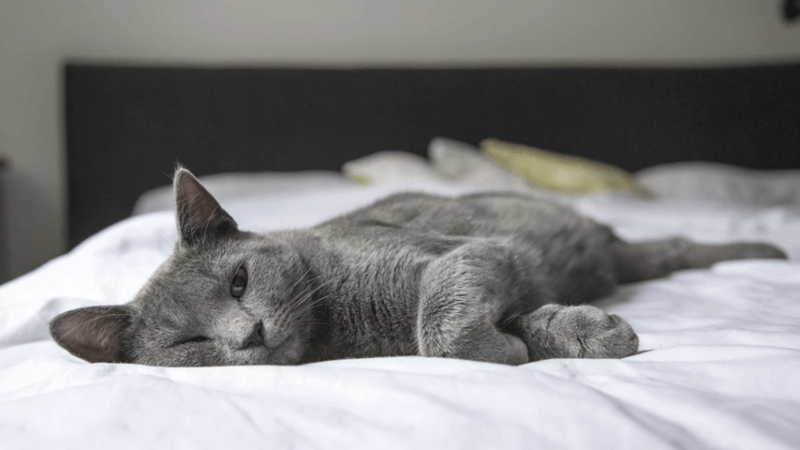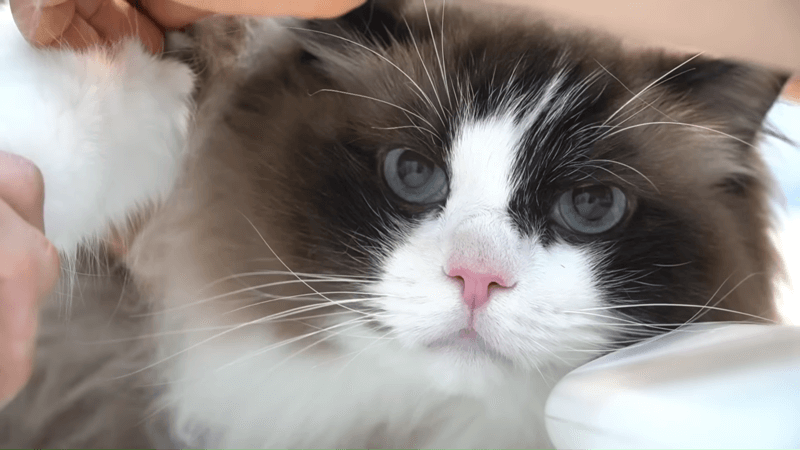No products in the cart.
CBD oil for cat ear infection is a topic that has gained attention among pet owners. In recent years, CBD oil has emerged as a potential remedy for various feline ailments, including ear infections. In this blog, we will guide you through the intricacies of using CBD oil for cat ear infections, the importance of early detection, and how to ensure your cat’s well-being is the top priority.
Can I Put CBD Oil in My Cats Ear?
While some pet owners have explored using CBD oil to help their cats with various conditions, it’s important to approach this cautiously. Before administering any substance to your cat, especially in the ears, it’s wise to consult with a veterinarian. They are your best source of guidance on how to use CBD oil safely and effectively. Your vet can provide advice on the right dosage and the best way to administer it. When it comes to applying substances to a cat’s ears, it can be a bit tricky, so professional guidance is invaluable. Make sure that any product you use is pet-safe and doesn’t contain any harmful additives.

Common Signs and Symptoms of Cat Ear Infections
Ear infections can be quite uncomfortable and painful for your furry friend. Look out for these common signs:
- You might notice your cat scratching or rubbing the affected ear.
- Frequent head shaking is a telltale sign as they try to relieve the itchiness.
- Keep an eye out for any discharge from the ear, which can range in color from brown to yellow or even bloody.
- The ear might appear red and swollen. There’s often a distinct, unpleasant odor coming from the infected ear.
- Excessive earwax buildup could be another indicator.
- Hearing loss or sensitivity around the ears can be a concern.
- Balance issues or walking in circles might suggest an ear infection is at play.
The Importance of Early Detection and Treatment
Early detection and treatment of cat ear infections is crucial for several reasons:
- Pain relief: Ear infections can be really painful for cats, and getting treatment promptly can provide relief from their discomfort.
- Preventing complications: If left untreated, ear infections can lead to more severe issues like chronic infections, hearing loss, or even damage to the eardrum.
- Faster recovery: Acting early is often the key to a quicker and more complete recovery.
- Reducing discomfort and stress: Ear infections can be pretty distressing for cats, so addressing the issue swiftly can significantly improve their quality of life.
- Avoiding antibiotic resistance: Timely treatment with the right antibiotics can help prevent the development of antibiotic-resistant bacteria, which is a growing concern in healthcare.
Differentiating Between Ear Infections and Other Ear Issues
It’s essential to differentiate between ear infections and other ear problems, such as ear mites or allergies. Here are some pointers to distinguish between them:
- Ear mites: Ear mites can cause itching, head shaking, and discharge similar to ear infections. However, mites are often visible under a microscope, and their presence is typically confirmed by a veterinarian.
- Allergies: Allergies can cause ear irritation and itching but may not always produce the characteristic ear infection signs like discharge and a foul odor. Allergies often present with other skin or respiratory symptoms.
CBD Oil for Cat Ear Infections: How Does It Work?
You might be wondering how CBD oil could help with cat ear infections. Well, it’s believed to work by interacting with the body’s endocannabinoid system (ECS), which plays a role in regulating various processes like pain, inflammation, and the immune response. When CBD is introduced, it may bind to cannabinoid receptors in the ECS, and here’s what that might mean:
- Pain Relief: CBD could potentially help relieve the discomfort and pain associated with ear infections by affecting pain pathways within the ECS.
- Anti-Inflammatory Effects: CBD is known for its anti-inflammatory properties, which could help reduce inflammation in the infected ear and surrounding tissues.
- Immune Modulation: CBD might influence the immune response, potentially helping the body fight off the infection.

Potential Benefits of CBD for Ear Infections
So, what could be the potential benefits of using CBD for cat ear infections? They may include:
- Pain Relief: CBD may help alleviate the pain and discomfort associated with ear infections.
- Anti-Inflammatory: CBD’s anti-inflammatory properties could reduce swelling and redness in the infected ear.
- Immune Support: CBD might support the immune system in its battle against the infection, complementing other prescribed treatments. However, it’s crucial to consult with a veterinarian before using CBD for your cat.
Side Effects and Precautions
Now, before you rush to use CBD for your cat’s ear infection, it’s important to be aware of potential side effects and take precautions.
- Lack of Regulation: First, it’s worth noting that CBD products aren’t as regulated as we’d like them to be. Make sure to use high-quality products designed specifically for pets to ensure their safety.
- Interaction with Medications: CBD can sometimes interact with other medications your cat may be taking. To avoid any adverse interactions, it’s a good idea to discuss this with a veterinarian.
- Proper Dosing: Getting the right dose is crucial. Your vet can help determine the correct amount, taking into account your cat’s size, weight, and the severity of the ear infection.
- Allergic Reactions: Though it’s rare, some cats may have allergic reactions to CBD or the carrier oils used in CBD products. Keep an eye on your cat for any adverse reactions.
- Underlying Issues: Remember, CBD shouldn’t replace addressing the root cause of the ear infection. Be sure to consult with your vet to figure out what’s causing the infection and the appropriate treatment.
- Legal Considerations: Lastly, the legality of CBD products can vary by location. Make sure you’re using a legal product in your area. It’s always better to be safe and within the law.
Is a Cat Ear Infection an Emergency?
A cat ear infection isn’t typically classified as a full-blown emergency, but it’s still a matter that requires your attention. It may not be a life-or-death situation, but you shouldn’t disregard it either. Timely action is essential.

How to Tell if Cat Has Ear Infection
- Head shaking and ear scratching: Cats may do this to alleviate discomfort.
- Redness, swelling, and bad odor: Infections often cause inflammation and produce a foul smell.
- Unusual discharge: Look for brown, yellow, or bloody discharge.
- Excessive earwax or crust: More buildup than usual can signal an issue.
- Hearing loss or behavior changes: Cats may be less responsive to sounds and exhibit odd
The Urgency and Seriousness of Ear Infections in Cats
While it might not be an immediate emergency, treating cat ear infections promptly is crucial. Ignoring them can lead to more severe complications, like chronic infections, hearing loss, or even damage to the eardrum. So, it’s not just about the current discomfort your cat might be experiencing; it’s also about safeguarding their long-term well-being. Early detection and treatment offer pain relief, prevent complications, lead to a faster recovery, reduce discomfort and stress for your cat, and contribute to the global effort to avoid antibiotic resistance in healthcare. So, in short, it’s not an emergency in the traditional sense, but it’s certainly a matter of significance for your feline friend’s health.
Conclusion
Using CBD oil for cat ear infections, while potentially beneficial, requires careful consideration and expert guidance. Before administering any substance to your cat’s ears, it’s crucial to consult with a veterinarian. When it comes to your cat’s health, professional guidance is invaluable. Additionally, always ensure that any product you use is specifically designed for pets, free from harmful additives, and sourced from reputable manufacturers. Your cat’s health is the most important thing, so make wise decisions to support their health and happiness.
I am Nelson Cooper, I pursue my passion for writing and my belief is that cats love humans. I enjoy traveling and have a deep appreciation for the beauty of nature, as well as a soft spot for animals, particularly cats.



